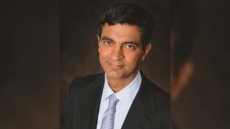A selfie reveals more than whether it's a good hair day. Facial lines and contours, droops and dark spots could indicate how well you're aging, and, when paired with other data, could someday help determine whether you qualify for life insurance.
"Your face is something you wear all your life, and it tells a very unique story about you," says Karl Ricanek Jr., co-founder and chief data scientist at Lapetus Solutions Inc. in Wilmington, North Carolina.
Several life insurance companies are testing Lapetus technology that uses facial analytics and other data to estimate life expectancy, he says. (Lapetus would not disclose the names of companies testing its product.) Insurers use life expectancy estimates to make policy approval and pricing decisions. Lapetus says its product, Chronos, would enable a customer to buy life insurance online in as little as 10 minutes without taking a life insurance medical exam .
Life insurers already gather other data with your permission to get insight beyond the information you supply on the application. For example, they often pull motor vehicle records, prescription drug histories and reports from an insurance industry database of certain information disclosed on past individual life and health insurance applications.
Many life insurance companies are exploring how to use additional data, statistical models, artificial intelligence and other techniques to help make quick decisions to ease the policy buying process and boost sales. Consumers don't like the wait on the typical application process, which can take weeks and often requires a medical exam.

Time and testing will tell which new approaches prove effective, says Robert Kerzner, president and CEO of LIMRA, a life insurance trade group. "This one may or may not meet the vetting process to make carriers comfortable," he says.
It's important for the consumer to feel comfortable, too. It's one thing to post a selfie on Instagram, another to send it to an insurer for analysis. And it's crucial for consumers that any technology an insurer uses works. Their claims may not be fully paid if insurers make inaccurate predictions and go belly up.
IT'S WRITTEN ALL OVER YOUR FACE
If Chronos is adopted by an insurer - which would need to get regulatory approval from states to use it in the underwriting process - here's generally how it would work.
You'd upload a selfie to the insurer online and answer health and other questions. The facial analytics technology would scan hundreds of points on your face and extract certain information, including your body mass index, physiological age (in layman's terms, how old you look) and whether you're aging faster or slower than your actual age.
Ricanek says the program can detect makeup, but not plastic surgery. It verifies identity by comparing the photo to the one on your driver's license.

The insurer would combine the results with your application answers and, if it chooses, any other information it typically pulls. If approved for coverage, you could buy a policy immediately online.
Several of the largest life insurers contacted for this story declined to comment on the Lapetus product or the potential use of facial analytics in the underwriting process.
Ricanek worked on facial recognition technology for the FBI's Biometric Center of Excellence and is a computer science professor at the University of North Carolina at Wilmington. He started Lapetus with S. Jay Olshansky, a public health professor at the University of Illinois at Chicago. Lapetus launched Chronos, its first product, in November 2015.
SHORTENING THE WAIT
Insurers are in a tough spot because consumers are used to buying products instantly. But it can take a month or longer to approve coverage if the insurer requires a medical exam.
Exams cost insurers money, says Samantha Chow, a life insurance and annuities senior analyst for Aite Group, a research and advisory firm in Boston.
And fewer people are buying. In 2016, an estimated 9.4 million individual policies were sold, down from 17.7 million individual policies in 1984, according to LIMRA.
Consumers don't like waiting. Only 42 per cent of consumers said it was OK to wait a month for policy approval, and less than 18 per cent said waiting for two months was acceptable, according to a 2015 study by LIMRA and Life Happens, another trade group.
Chow tested the Lapetus platform as part of research of automated underwriting for Aite. She says the ease of the process could appeal to consumers who want a quick way to buy coverage.
PHOTO OPS
Ricanek says his company's market research found that consumers are willing to share photos with insurers if they get something back, such as the opportunity to buy coverage quickly.
Amy Bach, executive director of consumer advocacy group United Policyholders, says such technology could be good for consumers if it makes the application process easier.
But she says she is concerned that insurers may rely too heavily on new technology and find later that their risk projections were off.
Meanwhile, Lapetus is exploring how facial analytics may identify early signs of diseases such as diabetes, heart disease or dementia. And it's developing a feature that it says will be able to tell whether someone ever smoked. Among the clues are early signs of crow's feet around the eyes and under-eye bagging.
"Smoking is going to be written on your face," Ricanek says. "Even if you stopped smoking, once it's written, it's there."





